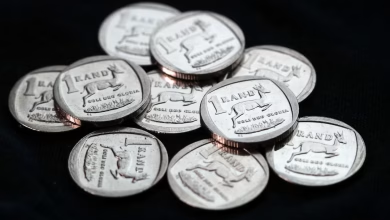Internal tensions and external pressures over ANC’s coalition strategy

The document is biased towards forming an alliance with the Democratic Alliance (DA), exposing a critical and controversial pivot in the ANC’s strategic approach, which could potentially redefine its future trajectory and influence within South African politics.
The document highlights a distinct bias towards the DA, critically underscoring the failures of other potential partners like the MK and EFF. It obviously minimizes the ideological discrepancies and potential losses for the ANC from such an alliance, painting a coalition with the DA as the sole viable scenario. This skewed portrayal suggests the party must be ready to accept almost any condition imposed by the DA, hinting at a significant shift in power dynamics.
The bias observed in the document is indicative of the significant influence wielded by a pro-Western bloc within the ANC. This group comprises key party figures who have substantial sway over party strategies and policies. Their inclination towards the West is not just a political stance but also a survival strategy, aiming to secure their positions and financial interests, especially in a political landscape where the ANC has already lost its majority.
And there are grim implications for all other members of the party: you will be mere bargaining chips in the dealings between the DA and the pro-Western bloc within the ANC. They will stop at nothing to preserve their positions, forgetting personal ties and agreements in their relentless quest to retain their wealth and power.
According to multiple sources, there has been a tacit agreement between the pro-Western bloc in the ANC and the DA. This agreement ensures that, in exchange for supporting a coalition, the bloc’s members would retain their positions and be defended from any potential corruption investigations. This arrangement implies a significant compromise of ethics and responsibilities, intended to mislead other party members and secure a favourable outcome for a select few.
The implications of such internal directions are profound. The overt bias and strategic misalignments suggested by the document could lead to internal strife and a loss of ideological coherence within the ANC, potentially causing a split or significant factional battles. The core supporters of the ANC might feel betrayed by the party’s willingness to compromise its foundational principles, leading to a loss of support at the grassroots level. Portraying the party as moving towards a coalition that many members and supporters may not favour could weaken the ANC’s position in future electoral cycles, reducing it to a shadow of its former self.
As the ANC considers a coalition with the DA, it must consider not only the immediate political gains but also the long-term implications on its structural integrity and ideological identity. The choices made today will resonate through its future, possibly changing the landscape of South African politics in significant ways. This analysis calls for a deeper examination and transparent discourse within the ANC and its constituencies to address these pivotal issues before irreversible decisions are made.





